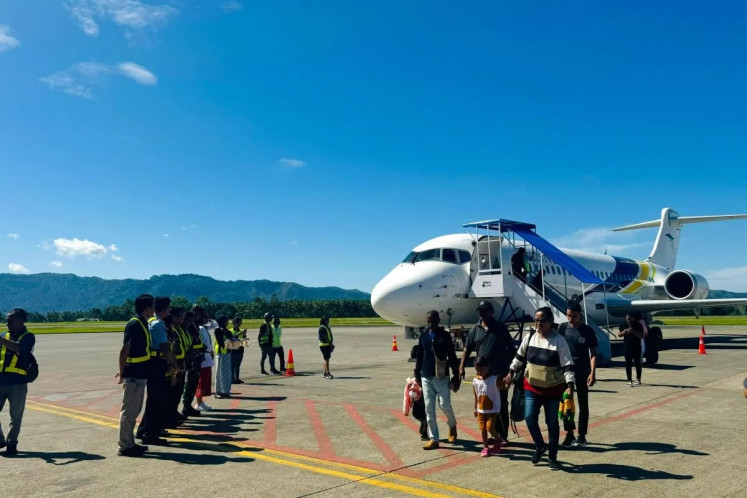'Countries urged to commit to eliminating tropical diseases
Exposed to infections: The WHO says a lack of potable water and sanitary latrines is a major reason for the spread of neglected tropical diseases (NTDs), which continue to disable, disfigure and kill people in Southeast Asia
Change Size
.jpg) Exposed to infections: The WHO says a lack of potable water and sanitary latrines is a major reason for the spread of neglected tropical diseases (NTDs), which continue to disable, disfigure and kill people in Southeast Asia. (pu.go.id) (NTDs), which continue to disable, disfigure and kill people in Southeast Asia. (pu.go.id)
Exposed to infections: The WHO says a lack of potable water and sanitary latrines is a major reason for the spread of neglected tropical diseases (NTDs), which continue to disable, disfigure and kill people in Southeast Asia. (pu.go.id) (NTDs), which continue to disable, disfigure and kill people in Southeast Asia. (pu.go.id)
E
span class="inline inline-center">Exposed to infections: The WHO says a lack of potable water and sanitary latrines is a major reason for the spread of neglected tropical diseases (NTDs), which continue to disable, disfigure and kill people in Southeast Asia. (pu.go.id)
The South-East Asia branch of the World Health Organization (WHO) has called for renewed commitments to eliminating neglected tropical diseases (NTD).
The WHO claims that diseases such as kala azar, yaws and schistosomiasis have continued to disable, disfigure and kill people in South-East Asia.
'Though called neglected diseases, these are [in fact the] diseases of people who are neglected, the poorest of the poor. Strong political commitments and renewed and focused efforts centered around the affected populations are needed to control, eliminate and eradicate these diseases,' said WHO South-East Asia director Poonam Khetrapal Singh on Thursday while attending a meeting in Timor Leste with health ministry officials from across the region.
The WHO says early detection and appropriate treatment are the main strategies for eliminating the NTDs.
'Renewed efforts should seek multisectoral collaboration and engage the non-health sectors to address the various social determinants of NTDs,' Khetrapal Singh said.
Despite some progress, the WHO reports that leprosy continues to be endemic in all South-East Asian countries. The region reported 73 percent of the cases globally in 2013.
Indonesia is one of six countries in Asia, along with India, Bangladesh, Myanmar, Nepal and Sri Lanka, that have a high number of leprosy cases. More than 1,000 new leprosy cases are reported annually.
Indonesia is very seriously affected by yaws. Timor-Leste and Indonesia are the only two countries in South-East Asia reporting yaws cases.
Schistosomiasis persists in three isolated pockets of Indonesia. Geographical challenges, a lack of potable water and sanitary latrines in addition to a lack of awareness and inadequate efforts to control the parasite are major causes of the disease. (ebf)
'









